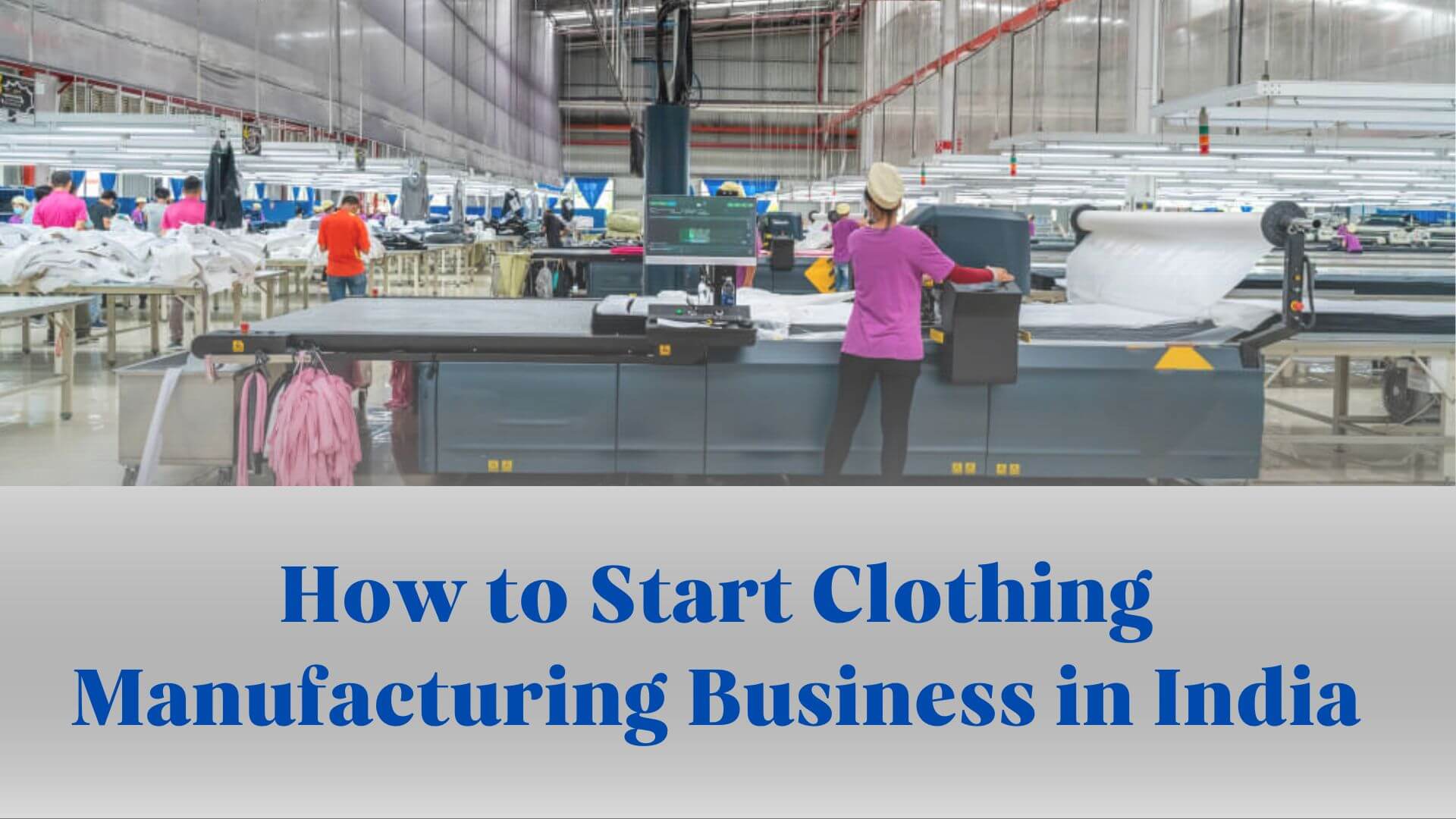Introduction:
India, with its rich textile heritage, diverse cultural
influences, and a booming consumer market, presents a lucrative opportunity for
entrepreneurs looking to start a clothing manufacturing business. However,
navigating the complexities of the industry and ensuring a successful venture
requires careful planning and execution. In this guide, we will walk you
through the essential steps to start a clothing manufacturing business in
India.
1. Market Research
and Planning:
Before diving into the clothing manufacturing business, it's
crucial to conduct thorough market research. Understand the current trends,
consumer preferences, and potential competitors. Identify your niche and target
audience to tailor your offerings accordingly. Develop a solid business plan
that outlines your goals, target market, financial projections, and operational
strategies.
2. Legal Formalities
and Registration:
Compliance with legal requirements is essential to establish
a legitimate business. Register your company with the Ministry of Corporate
Affairs (MCA) in India. Obtain the necessary licenses and permits, including
Goods and Services Tax (GST) registration. Comply with labor laws and ensure
your manufacturing facility adheres to safety and environmental regulations.
3. Location and
Infrastructure:
Choose a suitable location for your manufacturing unit.
Consider proximity to raw material suppliers, availability of skilled labor,
and transportation facilities. Invest in a well-equipped production facility
with adequate space for machinery, storage, and office operations. Ensure
compliance with building codes and safety standards.
4. Source Raw
Materials:
Establish reliable relationships with suppliers for raw
materials such as fabrics, threads, buttons, and other necessary components.
Negotiate favorable terms, and ensure a steady and quality supply chain. Keep
abreast of market trends to adapt your material choices accordingly.
5. Manufacturing
Equipment and Technology:
Invest in modern and efficient manufacturing equipment to
ensure productivity and product quality. Embrace technology to streamline
processes, from design to production. Consider implementing computer-aided
design (CAD) systems and other automation tools to enhance efficiency.
6. Skilled Workforce:
Recruit skilled and experienced personnel for various roles
in your manufacturing unit. Provide training programs to enhance their skills
and ensure adherence to quality standards. A well-trained and motivated
workforce is critical for the success of your clothing manufacturing business.
7. Quality Control:
Implement stringent quality control measures throughout the
production process. Regularly inspect products to ensure they meet the highest
standards. Quality control is crucial to building a positive reputation and
gaining customer trust.
8. Marketing and
Branding:
Develop a strong brand identity and marketing strategy to
promote your clothing manufacturing business. Utilize online and offline
channels to reach your target audience. Build a professional website, establish
a presence on social media platforms, and consider collaborating with retailers
and fashion influencers to enhance visibility.
9. Distribution and
Logistics:
Establish an efficient distribution network to ensure timely
delivery of products. Collaborate with reliable logistics partners to
streamline the supply chain. Consider both online and offline distribution
channels to reach a wider audience.
10. Financial
Management:
Maintain a robust financial management system to track
expenses, revenues, and profitability. Monitor cash flow, manage inventory
efficiently, and plan for future investments. Seek professional financial
advice when needed.
Document
required for start a Clothing Manufacturing Business in India in 2024
Starting a clothing manufacturing business in India involves
several legal and regulatory procedures. Here is a list of essential documents
required for establishing and operating a clothing manufacturing business:
1. Business Plan:
A comprehensive business plan outlining your company's
goals, target market, financial projections, and operational strategies.
- Memorandum of Association (MOA) and Articles of
Association (AOA)
- Certificate of Incorporation
- PAN (Permanent Account Number) for the company
3. Goods and Services
Tax (GST) Registration:
- GST registration certificate, as the clothing
manufacturing business falls under the purview of GST.
4. Trade License:
- Obtain a trade
license from the local municipal authority to legally operate your
manufacturing unit.
5. Factory License:
- A factory license is mandatory for manufacturing
units. Apply for the license from the state's Factory Inspectorate.
6. Environmental
Clearance:
- If your manufacturing unit has the potential to
impact the environment, you may need to obtain environmental clearances from
the relevant authorities.
7. Labour License:
- Obtain a labor license as per the Shops and
Establishments Act from the local labor department.
8. Import-Export Code
(IEC):
- If you plan to engage in international trade,
obtain an Import-Export Code from the Directorate General of Foreign Trade
(DGFT).
9. Trademark Registration:
- Consider registering your brand name and logo as
trademarks to protect your intellectual property.
10. Legal Agreements:
- Any legal agreements related to the business,
such as lease agreements for the manufacturing facility and contracts with
suppliers and distributors.
11. Financial
Documents:
- Bank statements and financial statements,
including income statements, balance sheets, and cash flow statements.
12. Employee
Documents:
- Employee identification documents, such as PAN
and Aadhar cards, along with appointment letters and employment contracts.
13. Insurance
Policies:
- Business insurance policies covering aspects
such as property, liability, and employee health insurance.
14. Quality
Certifications:
- Any relevant quality certifications for your
products, ensuring compliance with industry standards.
15. Fire Safety
Certificate:
- Obtain a fire safety certificate from the local
fire department for your manufacturing facility.
16. Power Connection
Documents:
- Proof of electrical connection and compliance
with safety standards.
17. Inventory
Records:
- Maintain detailed records of your inventory,
including raw materials and finished products.
18. Licenses from
Relevant Authorities:
- Any additional licenses or permits required by
specific state or local authorities.
Before proceeding, it's advisable to consult with legal and
business professionals to ensure compliance with all applicable laws and
regulations. The specific requirements may vary based on the location of your
manufacturing unit and the scale of your operations.
Conclusion:
Starting a clothing manufacturing business in India requires careful planning, dedication, and a commitment to quality. By following these steps and staying informed about industry trends, you can build a successful and sustainable venture in one of the world's most dynamic and exciting markets.

